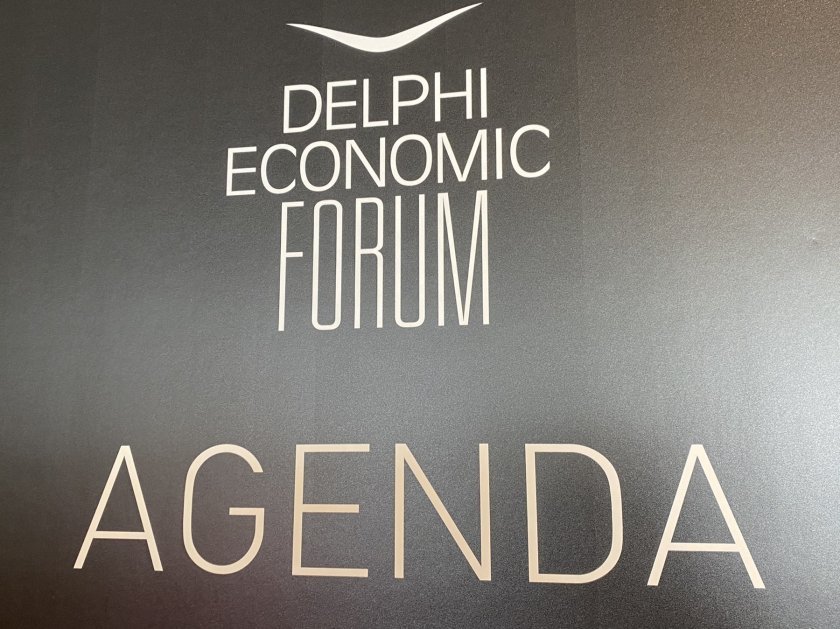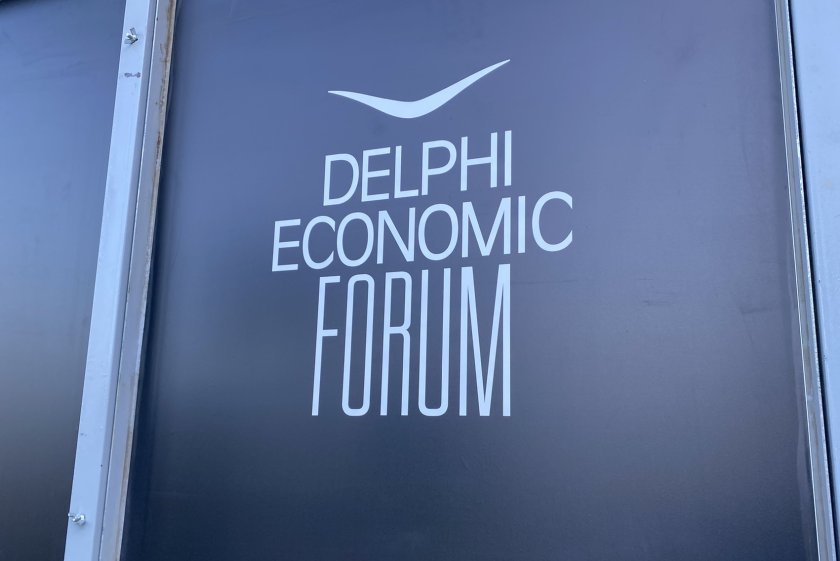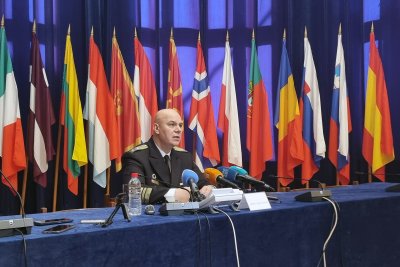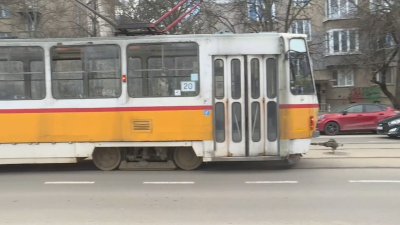Bulgaria’s President Rumen Radev on April 28 participated in the eighth Delphi Economic Forum in Greece.
The forum, which brings together over 990 politicians, diplomats, experts and economists from all over the world, will discuss the geopolitical implications caused by the Covid-19 pandemic and the war in Ukraine, energy security and economic development in Europe, and the European integration of the Western Balkans.
The Bulgarian Head of State is among the special guests, along with Prime Minister of Greece Kyriakos Mitsotakis, Albania's Edi Rama and President of Cyprus Nikos Christodoulides.
Bulgaria’s caretaker Deputy Prime Minister for the management of EU funds, Atanas Pekanov, said that Europe was coping well with the shocks related to the war in Ukraine and the suspension of energy supplies.
"In recent months, key steps have been made in exactly this - the completion of the interconnector, the steps after that, and the signing of the Solidarity Ring agreement literally just a few days ago, puts us literally at the centre as the entry point in Europe for all these energy issues. We are discussing and will discuss how Europe is dealing with the challenge of the energy crisis. Over the last year, Europe has managed to cope because it has used flexibility, because it has used its strategic reserves, and because it has strengthened and secured its supply of energy resources. This has also happened in Bulgaria. Bulgaria will continue to strengthen its autonomy in terms of building renewable energy sources (RES) - one of the main topics of the forum is how to make this possible, how to ensure the stability of the electricity distribution system. These are the investments that will happen in Bulgaria under the Recovery and Resilience Plan. Also reforms to encourage the construction of RES. And Europe's new priority - to bring more manufacturing back to Europe," Pekanov explained.

The world is going through a seismic, profound transformation geopolitically - from benign globalisation a decade ago to an era of renewed Great Power rivalry. A time of absolute threats in which Ukraine should be supported.
These assessments by former CIA Director, Gen. David Petraeus, and former Swedish Prime Minister, Carl Bildt, are the most succinct analysis of the period we are going through.
"There are a lot of financial, political, economic, rising geopolitical tensions and we are now in a period of serious threats. We have to be attentive to a lot of things. Obviously we have to prevail in Ukraine. This is important not only for Ukraine but for the global order," said Carl Bildt, former Prime Minister of Sweden, co-chair of the European Council on Foreign Relations.
"A really seismic, profound shift in geopolitics is happening. From a world of benign globalisation a decade ago - global trade was going like this, barriers to trade, investment and capital were gradually falling - to an era of renewed great power rivalries," said Gen. David Petraeus, former CIA director.










 Чуй новините
Чуй новините Подкаст
Подкаст




















